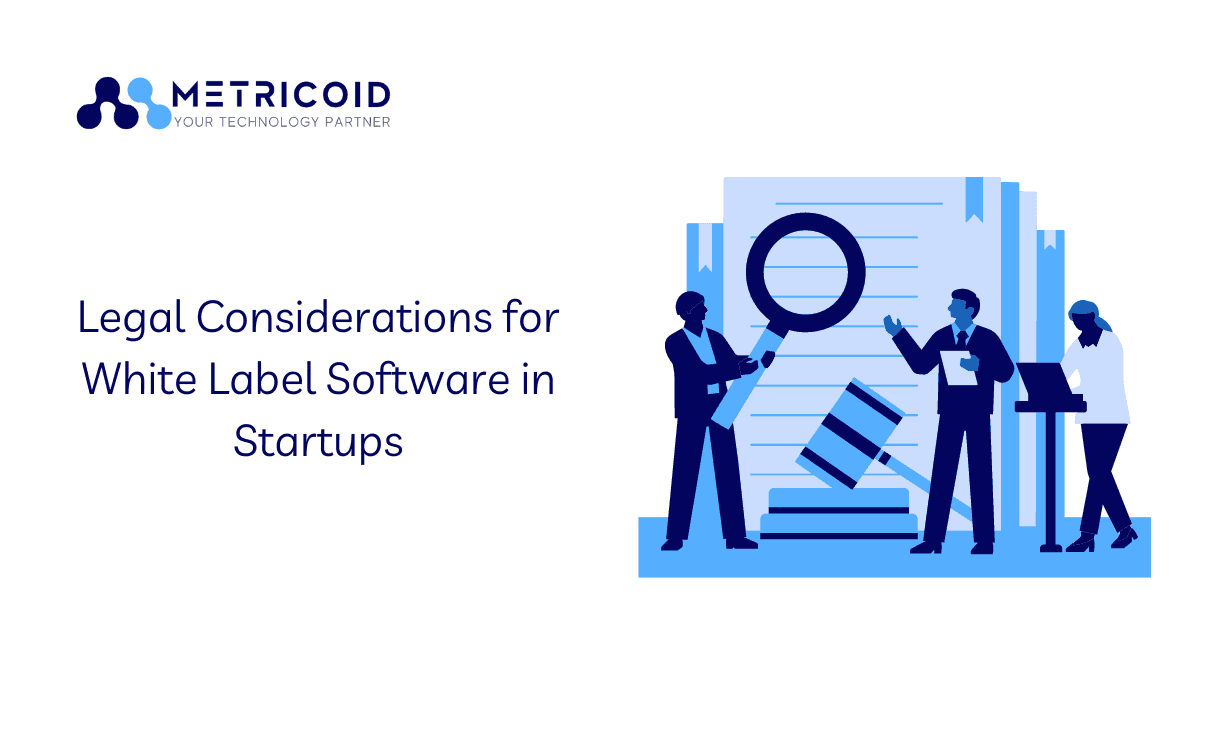Startups often utilize white-label software solutions to quickly launch and scale their products. However, while white labeling can be highly advantageous, there are important legal aspects that startups need to consider. Below is a comprehensive overview of these legal considerations:
-
Navigating the Complex Landscape of Intellectual Property Rights in White-Label Agreements
Intellectual property rights play a crucial role in white-label agreements. Startups need to carefully assess the terms and conditions associated with the use of the software, including licensing restrictions and allowable modifications. Understanding who retains ownership of the software’s source code is essential, as this has implications for how the software can be used, altered, and marketed.
-
Ensuring Data Protection: The Importance of NDAs and Adhering to Global Data Privacy Regulations
Data privacy and protection have become hot topics in today’s digital age. When engaging with white-label providers, startups must prioritize data security. Robust non-disclosure agreements (NDAs) are essential to safeguard sensitive information. In addition, startups must be well-versed in global data privacy regulations, such as the General Data Protection Regulation (GDPR), which can have significant implications for data handling and storage practices.
-
Shielding Your Startup from Potential Legal Liabilities: Incorporating Indemnification Clauses and Addressing Liability Concerns
Protecting a startup from potential liabilities associated with software issues is paramount. Indemnification clauses are essential in white-label agreements, as they can help shield startups from third-party claims, particularly those related to intellectual property infringements. Clear demarcation of responsibilities and liability concerns in the agreement is crucial to avoid future conflicts and legal complications.
-
Planning for the Future: Establishing Clear Terms for Contract Termination and Service Level Agreements (SLAs)
Planning for the future is an essential part of any business relationship, including white-label partnerships. Startups should clearly define the terms for contract termination and outline how shared data will be managed post-termination. Additionally, it is important to establish detailed service level agreements (SLAs) that specify the level of support and assistance the white-label provider will offer throughout the partnership.
Distinguishing Between White-Label and Private-Label Agreements: Key Differences
While both white-label and private-label products serve as means for companies to rebrand and resell, their legal implications differ significantly. Startups must be equipped to discern these differences to make informed decisions.
White-label Products: These are typically software solutions developed by a company to be rebranded and sold by another company. Legally, the primary concern centers on licensing rights, modifications, and distribution channels.
Private Label Products: These, on the other hand, often pertain to tangible goods manufactured by one company to be branded and sold by another. The emphasis here is more on quality assurance, product liability, and warranties.
Critical Role of Due Diligence in White Label Partnerships
Diving into a white-label partnership without meticulous due diligence can spell doom for startups. There are tales of startups that failed to investigate their partner’s track record and faced repercussions. It’s not just about ensuring a product’s quality but also about gauging the reliability, market reputation, and financial stability of the white-label provider. Undertaking comprehensive due diligence minimizes risks and fosters a trustful partnership.
Engaging Legal Counsel: An Investment, Not an Expense
When it comes to legal considerations, particularly in complex areas like white-label software, startups might balk at the perceived high costs of retaining a lawyer. However, the perspective should shift from viewing legal counsel as an expense to seeing it as a necessary investment. Legal professionals not only help startups navigate the labyrinth of licensing agreements but also play a pivotal role in negotiations, ensuring the terms are favorable for the startup.
The Importance of Data Security and Privacy Provisions
In the modern digital landscape, where data breaches can tarnish reputations and attract massive fines, it’s paramount for startups to understand the data security implications associated with white-label software.
Different regions have distinct data protection regulations. For instance, the European Union’s GDPR emphasizes user consent and data minimization, while the California Consumer Privacy Act (CCPA) provides Californians the right to know what personal data is being collected about them. Startups must ensure the white-label software they utilize is compliant with these regulations.
It’s crucial to understand who can access the data and under what conditions. If the white-label software provider reserves the right to access or share the data, startups must know the specifics. Such provisions should be clearly stated in the licensing agreement.
Customization Scope and Limitations
One of the attractions of white-label software is the ability to customize it to fit the brand and business requirements. However, there are legal considerations here too:
Often, customization might involve tweaks that border on changing the original product’s essence. It’s vital to understand intellectual property boundaries. Startups should be clear about who owns the rights to these customizations and how they might affect the existing licensing agreements.
Sometimes, certain customizations might involve additional costs. To avoid unexpected expenses, startups should negotiate and document these costs upfront.
Understanding the Termination Clause
Every contract has an end, and it’s vital to understand how this end can be reached:
Both parties must be clear about what conditions might lead to a contract’s termination, such as breaches, non-payment, or other specific situations.
If a startup decides to shift from the current white-label software provider, there should be provisions defining the transition period, ensuring there’s no service disruption.
The journey of using white-label software is filled with legal intricacies. However, with a clear understanding and the right agreements in place, startups can minimize risks and set the stage for a fruitful collaboration.
Conclusion
White labeling can indeed propel startups into the market swiftly, but it’s essential to tread with caution. Keeping the above legal considerations in mind will not only protect your startup but also foster a transparent, healthy relationship with your software provider. Always consult with a legal professional to ensure all bases are covered, setting your venture up for long-term success.






